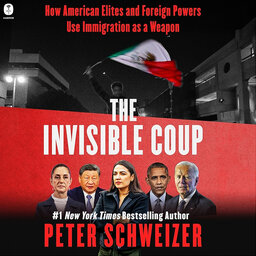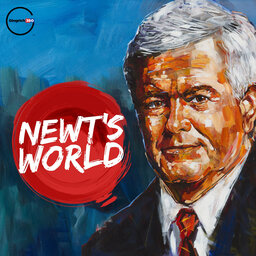Episode 762: TARGETED: BERUIT
Newt talks with James M. Scott about the tragic 1983 Beirut barracks bombing, which resulted in the deaths of 241 U.S. Marines, 58 French soldiers, and six civilians. This event marked the deadliest single-day loss for the U.S. Marine Corps since World War II and continues to impact United States foreign policy. James M. Scott is a Pulitzer Prize finalist and co-author with Jack Carr, of the new book "TARGETED: BERUIT – The 1983 Marine Barracks Bombing and the Untold True Origin Story of the War on Terror," which provides an in-depth account of the attack based on survivor interviews, military records, and personal documents. Their conversation covers the historical context of U.S. involvement in Lebanon, the complexities of the region's political landscape, and the strategic missteps that led to the bombing. Additionally, Scott shares insights into his career as a military historian and his experiences leading battlefield tours.
In 1 playlist(s)
Newt's World
Join former House Speaker, professor, historian, and futurist Newt Gingrich as he shares his lifetim…Social links
Follow podcast
Recent clips

Episode 948: ‘Moneyball’ for Politics
30:34

Episode 947: Will AI Take My Job
28:22

Episode 946: Peter Schweizer on “The Invisible Coup”
34:50
 Newt's World
Newt's World